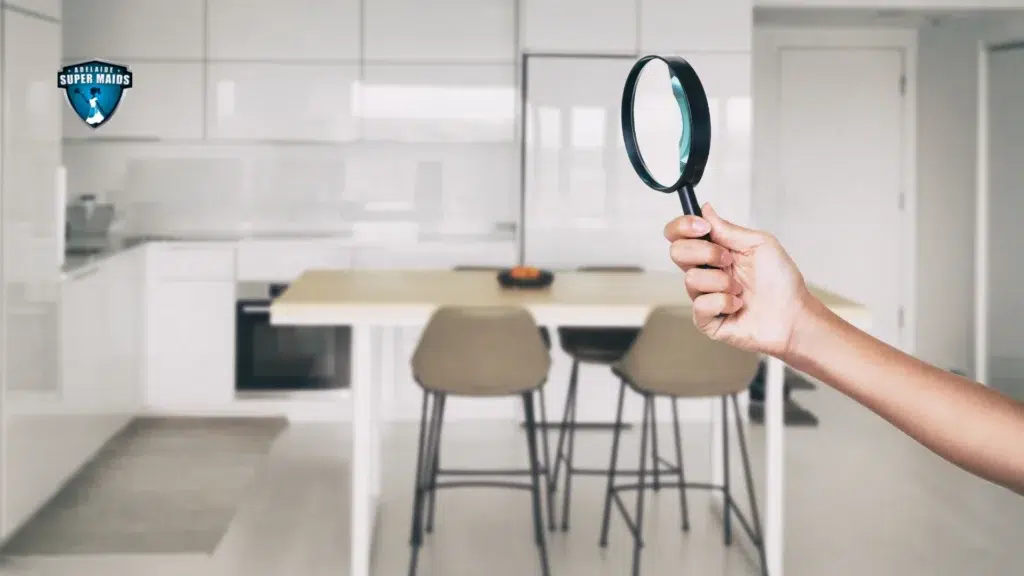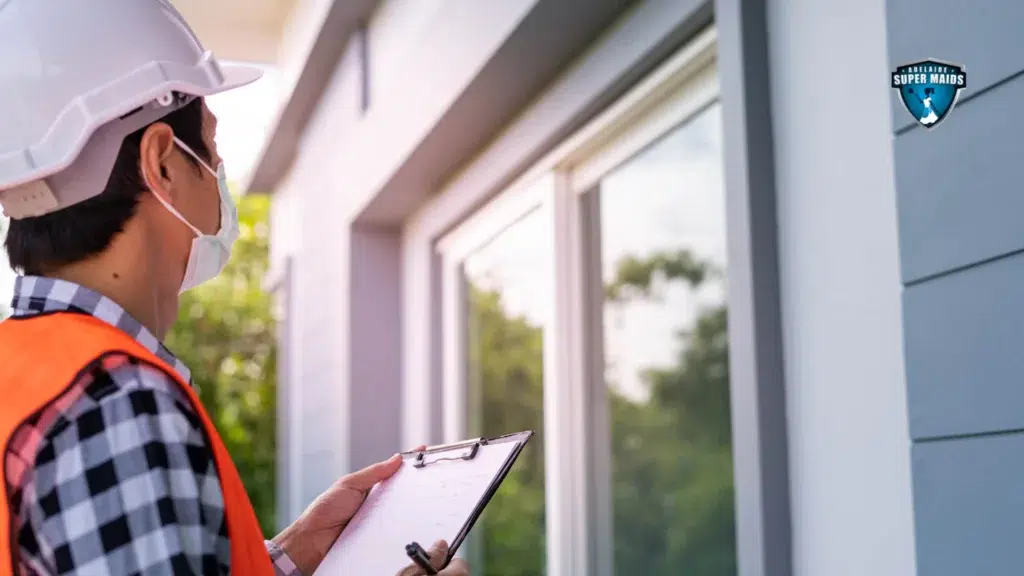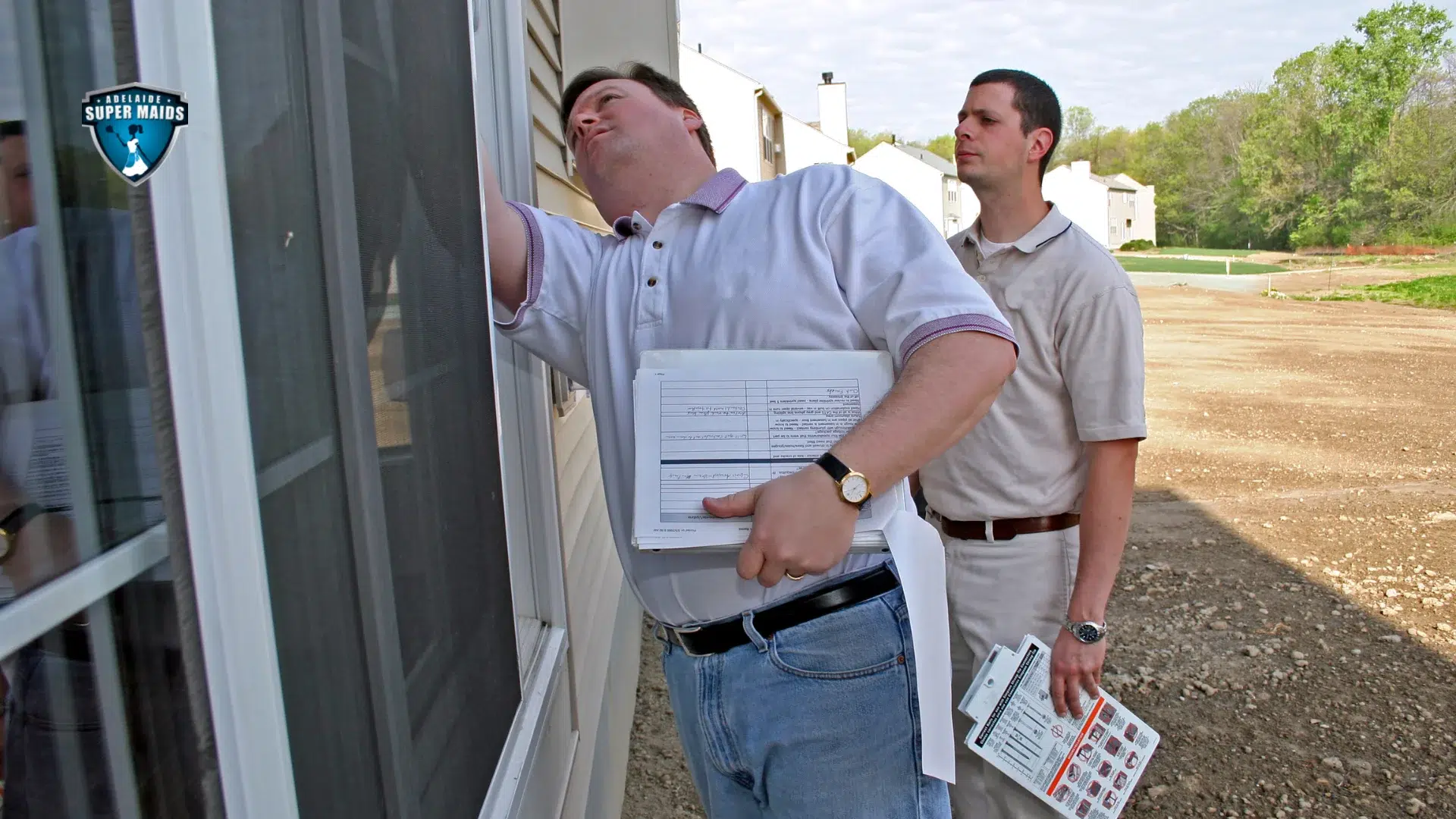Rental inspections can feel like a nerve-wracking event for both tenants and landlords. Picture this: you’re tidying up frantically, hoping everything passes the scrutiny of a keen-eyed inspector.
Sound familiar? Don’t worry, you’re not alone.
In this guide, we’ll break down everything you need to know about rental inspections. Whether you’re a tenant wanting to ensure you get your deposit back or a landlord looking to maintain your property, we’ve got you covered.
Let’s dive into the nitty-gritty and take the stress out of your next rental inspection.
Table of Contents
Understanding Rental Inspections
Rental inspections are routine checks carried out by landlords or property managers to ensure that the property is well-maintained and any potential issues are addressed promptly.
Think of them as a health check-up for your home. These inspections help landlords protect their investments and provide tenants with a safe and pleasant living environment.
Why Are Rental Inspections Important?
For Tenants:
- Peace of Mind: Regular inspections mean that any problems, like a leaky faucet or a malfunctioning appliance, can be fixed before they become major headaches.
- Security Deposit: Keeping the property in good shape increases the chances of getting your full security deposit back when you move out.
For Landlords:
- Property Maintenance: Inspections help identify and address maintenance issues early, preventing costly repairs down the line.
- Tenant Compliance: Ensuring tenants follow the terms of the lease agreement protects the property’s condition and value.
When Do Rental Inspections Occur?
Typically, rental inspections are conducted:
- At Move-In and Move-Out: To document the property’s condition before and after tenancy.
- During the Lease: Periodic inspections, often every three to six months, to check on the property’s upkeep.
Knowing the purpose and timing of these inspections can help both tenants and landlords approach them with confidence.
How to Prepare for a Rental Inspection
Preparation is key to a smooth and successful rental inspection. Whether you’re a tenant or a landlord, a little effort can go a long way. Here’s how you can get ready:

Tips for Tenants
- Clean and Tidy: Give your home a thorough cleaning. Focus on common inspection areas like kitchens, bathrooms, and living spaces. A clean home leaves a positive impression.
- Report Issues: If there are any maintenance problems, report them before the inspection. This shows you’re proactive and helps get repairs done quickly.
- Follow the Lease: Ensure you’re adhering to the terms of your lease. For example, if pets are not allowed or smoking is prohibited, make sure you’re in compliance.
- Organize Belongings: Neat and organized spaces not only look good but also make it easier for the inspector to check the property.
Tips for Landlords
- Schedule Conveniently: Notify tenants well in advance and choose a time that works for both parties. Respecting tenants’ schedules helps maintain good relations.
- Prepare a Checklist: Have a detailed checklist of areas to inspect. This ensures nothing is overlooked and the inspection is thorough.
- Be Professional and Courteous: Approach the inspection with professionalism and courtesy. This sets a positive tone and makes the process smoother.
- Document Findings: Take notes and photos of any issues found. This documentation can be crucial for addressing problems and for future reference.
What Inspectors Look For
Understanding what inspectors focus on can help you better prepare for a rental inspection.
Here’s a breakdown of the common areas and issues they typically check:
Interior Condition
- Cleanliness and Hygiene: Inspectors will look at overall cleanliness. They’ll check for dust, dirt, and signs of neglect.
- Walls and Paint: Any damage, such as holes, cracks, or peeling paint, will be noted.
- Floors and Carpets: Inspectors will examine floors and carpets for stains, wear, and tear.
- Doors and Windows: They’ll check if doors and windows are functional and secure. This includes locks, latches, and seals.
Kitchen and Appliances
- Appliances: All provided appliances, such as ovens, refrigerators, and dishwashers, should be clean and in working order.
- Cabinets and Countertops: These should be clean and free from damage.
- Plumbing: Faucets, sinks, and drains will be checked for leaks and proper functioning.
Bathrooms
- Sanitation: Bathrooms must be clean, with no mold or mildew.
- Fixtures: Inspectors will ensure toilets, sinks, and showers are working correctly.
- Ventilation: Proper ventilation is crucial to prevent moisture buildup and mold growth.
Electrical and Safety
- Smoke Alarms: Functioning smoke alarms are essential.
- Electrical Outlets and Lights: All outlets and lights should be operational.
- Security Systems: If the property includes security systems, they should be in working order.
Exterior Condition
- Yard and Garden: Inspectors will look at the upkeep of any outdoor spaces. This includes lawns, gardens, and pathways.
- Building Exterior: The condition of the roof, gutters, and exterior walls will be checked.
- Garbage Disposal: Proper waste disposal and cleanliness around garbage areas are important.
General Maintenance
- Pests: Any signs of pest infestations will be noted and need to be addressed immediately.
- Heating and Cooling Systems: These should be in good working condition and properly maintained.
By knowing what inspectors are looking for, tenants can better prepare their homes, and landlords can ensure their properties remain in top condition.
This proactive approach makes rental inspections a straightforward process for everyone involved.
Frequently Asked Questions About Rental Inspections
How often can landlords conduct rental inspections?
Landlords typically conduct routine inspections every three to six months. However, this frequency can vary depending on the lease agreement and local regulations.
Always check your lease and local laws to understand the specific requirements.
Do tenants need to be present during the inspection?
Tenants don’t have to be present, but it’s often beneficial. Being there allows tenants to address any immediate concerns or questions the inspector might have.
Plus, it demonstrates a willingness to cooperate and maintain the property.
Can landlords conduct inspections without notice?
No, landlords must provide notice before conducting an inspection.
The notice period varies by location but is usually 24 to 48 hours. This gives tenants ample time to prepare.
What happens if issues are found during the inspection?
If issues are discovered, landlords will typically notify tenants and outline what needs to be fixed. Tenants should address these issues promptly to avoid further problems or potential penalties.
For landlords, it’s a good practice to document the issues and follow up to ensure they’re resolved.
Can tenants refuse an inspection?
While tenants have the right to privacy, they generally cannot refuse a reasonable request for an inspection if proper notice is given.
However, inspections should be conducted at a mutually convenient time and following the lease agreement and local laws.
What should landlords do if a tenant refuses an inspection?
If a tenant refuses an inspection, landlords should try to understand the tenant’s concerns and work towards a compromise.
If the issue persists, landlords may need to seek legal advice or assistance from local housing authorities.

Final Tips for a Successful Rental Inspection
For Tenants
- Be Proactive: Don’t wait for inspection day to fix issues. Regular maintenance and cleaning can prevent last-minute scrambles.
- Communicate Openly: If you have concerns or questions about the inspection, talk to your landlord or property manager. Clear communication can resolve many potential problems before they escalate.
- Document Everything: Take photos or videos of the property’s condition when you move in and before the inspection. This can help resolve any disputes about damages or cleanliness.
For Landlords
- Build Rapport: Establish a good relationship with your tenants. A positive landlord-tenant relationship can make inspections less stressful and more productive.
- Be Fair and Consistent: Treat all tenants equally during inspections. Consistency ensures fairness and helps maintain trust.
- Provide Clear Guidelines: Let tenants know what you’ll be inspecting. A checklist can help tenants prepare and ensure the inspection is thorough.
Common Pitfalls to Avoid
- Last-Minute Repairs: Avoid trying to make repairs or clean up at the last minute. This can lead to subpar results and increased stress.
- Ignoring Small Issues: Don’t overlook minor problems. Small issues can become bigger over time if not addressed promptly.
- Being Unprepared: Whether you’re a tenant or a landlord, being unprepared can lead to unnecessary complications. Plan ahead and follow through on maintenance tasks regularly.
Conclusion
If you’re preparing for a rental inspection and want to ensure your property is in top shape, Adelaide Supermaids is here to help!
Our professional cleaning services are designed to meet the highest standards and make sure you pass your inspection with flying colours.
Why Choose Adelaide Supermaids?
- Expert Cleaners: Our team is trained to handle all aspects of home cleaning, from deep-cleaning kitchens and bathrooms to tackling those hard-to-reach spots.
- Comprehensive Services: We offer a range of services, including end-of-lease cleaning, carpet cleaning, and tile and grout cleaning.
- Convenient Scheduling: We work around your schedule to provide cleaning services when you need them most.
- Satisfaction Guaranteed: We’re committed to delivering exceptional results and ensuring our clients are completely satisfied.
Don’t leave your rental inspection to chance. Let us take the stress out of the process and give you peace of mind.
Contact us today to book a cleaning service or get a free quote.
Get our bond cleaning service today. Booking an affordable bond cleaning service in Adelaide is just a call or click away.
Here’s how you can get started:
Phone: 0451 787 887
Email: info@adelaide-supermaids.com.au
Website: Adelaide Super Maids House Cleaner
Office Hours:
-
Mon – Fri: 8:00 AM – 9:00 PM
-
Sat – Sun: 10:00 AM – 9:00 PM


